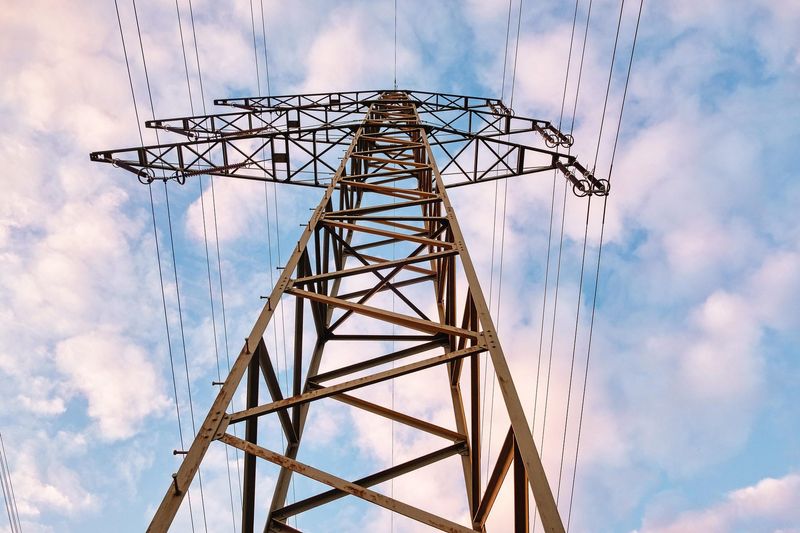Regions of the country with large numbers of data centers — warehouses full of computers for artificial intelligence and cloud computing — face increased risk of outages during extreme weather events this upcoming winter, a new report by an energy reliability watchdog finds.
“Winter electricity demand is rising at the fastest rate in years, particularly in areas where data center development is occurring,” the North American Electric Reliability Corp., or NERC states in its recently released “2025-2026 Winter Reliability Assessment.”

Bulk power system resources, such as generation facilities, transmission lines and interconnections, are growing — “but at a slower rate than demand is rising,” the report finds.
“Electricity demand continues to grow faster than the resources being added to the grid, especially during the most extreme winter conditions, where actual demand can topple forecasts by as much as 25%,” as seen during the failure of Texas’ power grid for days amid extreme winter weather in February 2021, said John Moura, NERC’s director of reliability assessments and performance analysis, in a statement.
The federal Energy Policy Act of 2005 empowers the Federal Energy Regulatory Commission to certify NERC as the electric reliability organization for North America. The not-for-profit regulatory authority’s mission is to reduce risks to reliability and security in the bulk power system.
While the Great Lakes region isn’t included among the regions most at risk, the report raises alarms for those concerned about the multiple large data centers currently seeking to locate in southern Michigan and their impact on overall grid stability in all seasons.
“This report suggests that the Midwest is currently well-positioned to avoid electricity supply shortfalls, but that could change as electricity demand continues to grow,” said Amy Bandyk, executive director of Citizens Utility Board of Michigan, an independent advocate for the interests of the state’s residential energy utility customers.
All regions of the country are assessed in NERC’s forecast as having adequate resources for normal winter peak load conditions. “However, more extreme winter conditions extending over a wide area could result in electricity supply shortfalls,” the report states. Regions cited as particularly vulnerable include the grids in northeastern and northwestern U.S. states, a region including Tennessee and South Carolina, and a region including Texas and Oklahoma.
“Strong load growth from new data centers and other large industrial end users is driving higher winter electricity demand forecasts and contributing to continued risk of supply shortfalls,” the report states for the Texas area grid region known as Texas Reliability Entity and the Electricity Reliability Council of Texas, or RE-ERCOT.
“Data centers are altering the daily load shape due to their round-the-clock operating pattern, lengthening peak demand periods.”
While battery storage and demand-response resources will help in the region, the study found, it could fall short “for extended periods of high loads, such as a severe multi-day storm like Winter Storm Uri,” the February 2021 Texas storm.
The Great Lakes region is part of the Midcontinent Independent System Operator, or MISO, whose grid extends from the Midwest into Northern Plains states down the Mississippi River to the Gulf of Mexico. NERC’s assessment of MISO’s winter readiness found it prepared for typical winter conditions load needs, but finds it could need energy transfers into the system from other locations that aren’t certain to be available, and modifications to its provided load to customers, in the event of extended extreme weather.
As many parts of the country transition away from coal-fired power generation to natural gas, the availability of the gas supply in harsh winter conditions is a critical factor in maintaining reliability, as starkly proven during the 2021 Texas storms.
“Natural gas is an essential fuel for electricity generation in winter,” said Mark Olson, NERC’s manager of reliability assessment. “Although we are seeing evidence of improved performance, grid operators in areas that rely on single-fuel gas-fired generators are exposed to unanticipated generator loss during cold snaps when gas supply interruptions are more prevalent.”
NERC called on grid operators to recognize load needs in extreme cold weather events and be prepared to take early action to manage potential deficiencies.
At least four large data centers are proposed for southern Michigan, including the more than $7 billion Stargate Data Center, a massive AI data center planned for 250 acres in Washtenaw County’s Saline Township by OpenAI, the creator of the popular artificial intelligence product ChatGPT; software giant Oracle, and Related Digital, a subsidiary of New York-based Related Companies started by Detroit native and University of Michigan megadonor Stephen Ross. That operation is working with DTE Energy to be provided with 4.4 gigawatts of power for its needs, enough electricity to power millions of Michigan homes.
Utilities in Michigan need to ensure not only preparedness for the load growth data centers will require, but the ability to maintain reliability in the extreme winter weather conditions that can often occur in Michigan, according to Bandyk.
“The Michigan Public Service Commission needs to carefully consider every proposed data center contract to ensure that the utility and data center company will have a plan in place to meet load growth resulting from the new data center, and that the company, not other customers, will pay for whatever new generation and transmission or distribution system upgrades are required,” she said.
Citizens Utility Board recently joined with the Sierra Club, Michigan Environmental Council and Natural Resources Defense Counsil to oppose DTE’s effort to approve its Saline Township energy deal with Stargate without a contested case hearing.
Contact Keith Matheny: kmatheny@freepress.com.
This article originally appeared on Detroit Free Press: Report: Data center-heavy regions at most risk of winter power outages
Reporting by Keith Matheny, Detroit Free Press / Detroit Free Press
USA TODAY Network via Reuters Connect


